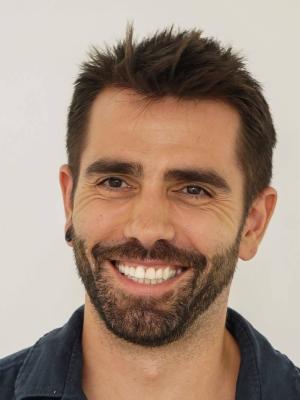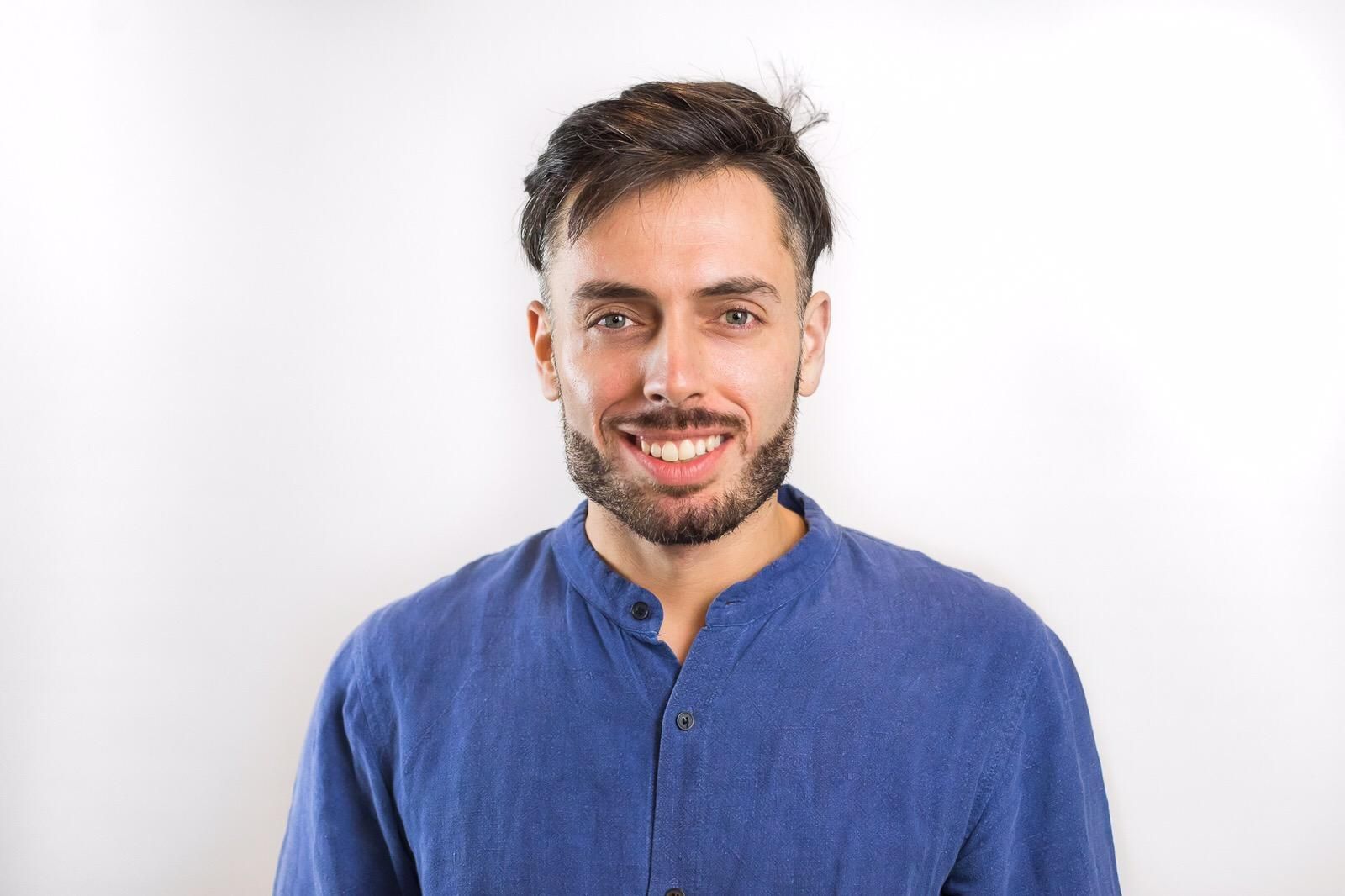Duke Kunshan University has recognized a group of faculty members who have been awarded tenure and promoted in academic rank, in honor of their outstanding contributions to research, teaching, and service.
The newly tenured and promoted faculty are:
- Andrew Cheon, Associate Professor of International Relations
- Myung-Joong Hwang, Associate Professor of Physics
- Ming Li, Professor of Electrical and Computer Engineering
- Rasoul Namazi, Associate Professor of Political Theory
- Renee Richer, Associate Professor of Biology
- Tommaso Tesei, Associate Professor of Humanities
- Chenkai Wu, Associate Professor of Global Health
- Zairong Xiang, Associate Professor of Comparative Literature
- Caio Yurgel, Associate Professor of Humanities
“Adding to our tenured faculty is a significant step in shaping the future of DKU, fulfilling its mission, and advancing its broader impact,” said Scott MacEachern, Vice Chancellor for Academic Affairs. “I am grateful for everyone’s continued contributions to DKU and look forward to another year of productivity and success ahead.”
The decision by the Duke Kunshan University Board of Trustees to confer these tenure awards and promotions on the faculty was based on the recommendation of the university’s ad-hoc tenure review committee and the Appointment, Promotion and Tenure (APT) Committee. Three main criteria determine the awarding of tenure at Duke Kunshan: the candidate’s work must be widely recognized as outstanding by peers, their teaching must be highly regarded, and they must have made significant contributions to the university community and to their discipline.
Tenured/Promoted Faculty

Cheon’s research focuses on governance, contestation, and conflict in the age of climate change and great power competition. He is researching global and regional leadership in the international system and microfoundations of threat perceptions among great powers.
His teaching interests at DKU include international politics, global governance, and international politics in East Asia. He is the recipient of the 2025 DKU Teaching Award.
He is the author of “Fueling State Capitalism” (Oxford University Press, 2023) and co-author of “Activism and the Fossil Fuel Industry” (Routledge, 2018). His work has appeared in Comparative Political Studies, Economics and Politics, and the Journal of Conflict Resolution.
Cheon earned his A.B. in political science and Asian and Middle Eastern studies from Duke University and his M.A. and Ph.D. in political science from Columbia University. Before joining DKU, he was an assistant professor of international political economy at the Johns Hopkins School of Advanced International Studies in Washington, D.C.

Hwang’s research focuses on the quantum nature of light and matter and developing ways to harness them for next-generation quantum technologies, including quantum computing. His teaching interests at Duke Kunshan include integrated science and quantum physics.
Hwang has a B.Sc. and a Ph.D in physics from Pohang University of Science and Technology, South Korea. Before joining DKU, he was a postdoctoral researcher at the Institute of Theoretical Physics at Ulm University, Germany.

Li’s research focuses on audio, speech and language processing, as well as multimodal behavioral signal analysis and interpretation. He has published more than 200 papers, with over 10,000 citations on Google Scholar.
He serves on the IEEE Speech and Language Technical Committee, the APSIPA Speech and Language Processing Technical Committee, and editorial boards for journals such as IEEE Transactions on Audio, Speech and Language Processing, Computer Speech and Language, and APSIPA Transactions on Signal and Information Processing.
His co-authored research has received numerous top honors in international competitions, including multiple first prizes at Interspeech, ASRU, VoxSRC, ICASSP and IJCAI challenges between 2011 and 2025. He was a co-author of the best paper award winners at DCOSS 2009 and ISCSLP 2014, and his work was shortlisted for best paper at Interspeech 2024.
Li received the IBM Faculty Award in 2016 and the ISCA Computer Speech and Language Five-Year Best Journal Paper Award in 2018.
Li earned his B.S. degree in communication engineering from Nanjing University in 2005, his M.S. degree in signal processing from the Institute of Acoustics at the Chinese Academy of Sciences in 2008, and his Ph.D. in electrical engineering from the University of Southern California in 2013.

Namazi’s research examines Islamic and Western political thought. His book, “Leo Strauss and Islamic Political Thought” (Cambridge University Press, 2022), received the Delba Winthrop Award for Excellence in Political Science and was the subject of a symposium in the Review of Politics. He is also co-editor of “Leo Strauss on Religion: Writings and Interpretations” (SUNY Press, 2024), and is currently writing a book on early Islamic political thought in the Quran.
His work has appeared in Comparative Political Theory, Review of Politics, Journal of Religion, Perspectives on Political Science, American Political Thought, Iranian Studies, Interpretation, Renaissance & Reformation, and Eurorient, as well as in several edited volumes.
A laureate of the Prix Raymond Aron, Namazi received his Ph.D. in Political Theory from École des Hautes Études en Sciences Sociales. Before joining DKU, he was an Alexander von Humboldt Postdoctoral Fellow at Ludwig Maximilian University of Munich (2019–2021) and a postdoctoral scholar at the Committee on Social Thought, University of Chicago (2016–2018).

Richer’s work sits at the intersection of environment and biology (particularly physiological ecology) with a focus on the impacts of climate change and ameliorating the impacts of climate change. She has worked extensively with plants, animals and microbial communities, focusing on semi-arid to hyper-arid environments.
For more than a decade, she has been working to understand the physiology and ecology of complex biocrusts in deserts and the bioactive compounds they produce. She is particularly interested in how environmental factors influence compound production and isomer ratios. Her teaching interests include biology and environmental science.
She has edited a book on developing university courses for environment, development and sustainability studies (Central European University Press), and has published a guide to the flora of Qatar (Akkadia Press). She served as guest editor for a Journal of Arid Environments special issue, Toxins in Desert Environments, and has published numerous peer-reviewed papers. She is a full member of Sigma Xi and a certified senior ecologist of the Ecological Society of America.
She holds a B.A. in biology (honors) from the University of Chicago and a Ph.D. in biology from Harvard University. Before joining DKU, she taught at Weill Cornell Medicine Qatar and the University of Wisconsin, Green Bay.

Tesei’s research focuses on the transmission of knowledge and culture in antiquity and late antiquity. His first book, published in 2024 by Oxford University Press, examines apocalypticism and ideology in Roman and Iranian societies during the reign of Justinian (6th century CE). His second book (forthcoming) delves into the reception of the Babylonian Gilgamesh Epic in late antique legends about Alexander the Great.
He earned his Ph.D. through a joint program between the Department of Oriental Studies at the University of Rome (La Sapienza) and the Department of Arabic Studies at the Institut National des Langues et Civilisations Orientales (INALCO) in Paris. From 2018 to 2019, he served as the Patricia Crone Member at the Institute for Advanced Study in Princeton. Prior to that, he spent five years as a Polonsky Research Fellow at the Van Leer Jerusalem Institute in Jerusalem.

Wu’s research focuses on promoting healthy aging and longevity through precision public health and medicine by examining how genetic factors, lifestyle, and the environment interact to affect the health of older adults. He has published 120 peer-reviewed papers, co-authored three books, and is an associate editor for the Journal of Gerontology: Medical Sciences. He also sits on the editorial boards of six international journals. He was listed in Stanford University’s list of the top 2% of global scientists in 2021 and 2024 (single-year impact category).
He was a faculty member at the Department of Epidemiology and Community Health at New York Medical College. He received his bachelor’s degree in psychology from Zhejiang University, an M.S. in human development and family sciences, an M.P.H. in biostatistics, and a Ph.D. in public health from Oregon State University.

(Photo credit: Power Station of Art)
Xiang’s research, teaching, and curatorial practices engage with cosmologies and cosmopolitanisms in their culturally diverse, historically specific, and conceptually promiscuous manifestations in English, Spanish, Chinese, French, and Nahuatl. He teaches across the curriculum at the Division of Arts and Humanities at DKU.
He is the author of “Queer Ancient Way: A Decolonial Exploration” (Punctum Books), and has also edited several exhibition catalogues, journal special issues, and a film archive. He has co-curated the 2021 Guangzhou Image Triennial (2021), Ceremony (Burial of an Undead World) at Haus der Kulturen der Welt (Berlin, 2022), and the 14th Shanghai Biennial Cosmos Cinema (2023-2024). Recently, he has curated at Para-Site Hong Kong an exhibition titled How to be Happy Together? (2024 – 2025); and is co-curating (with Denise Ryner) a research and exhibition project on Afro-Asia solidarity at ICA Philadelphia at the University of Pennsylvania (autumn 2026).
He is completing his second book on “transdualism.” Through the concept of “shanzhai/counterfeit,” he continues a multifaceted research into the artistic and intellectual exchanges in the Global South, especially between Latin America and China since the nineteenth century.
Once a research fellow at the ICI-Berlin Institute for Cultural Inquiry and a postdoctoral fellow of the DFG Research Training Group minor cosmopolitanisms at Potsdam University, he was twice the recipient of the EU Erasmus Mundus scholarship (MA and Ph.D.) and has received his cotutelle Ph.D. in comparative literature in 2013 from University of Tübingen (Germany) and University of Perpignan (France).

Yurgel has a background in philosophy, creative writing and comparative literature, with a focus on literature written in Chinese, French, German, Portuguese and Spanish. He takes on an interdisciplinary approach to teaching and research.
He is the author of “Landscape’s Revenge: The Ecology of Failure in Robert Walser and Bernardo Carvalho” (DeGruyter, 2018) and the collection of essays “A Estética do Espetáculo: Cinco Teses em Walter Benjamin” (NEA, 2013), and is a winner of the prestigious Mario Pedrosa Award for Essays on Contemporary Art and Culture, awarded by the Brazilian Ministry of Culture. He has also authored two award-winning novels: “Samba Sem Mim” (Saraiva, 2014) and “As Noites de Hong Kong São Feitas de Neon” (Gato Bravo, 2019).
He earned a Ph.D. in comparative literature from the Freie Universität Berlin, where he also served as a joint post-doctorate researcher in partnership with the Chinese University of Hong Kong. Before joining DKU, he was a postdoctoral fellow at Peking University.

